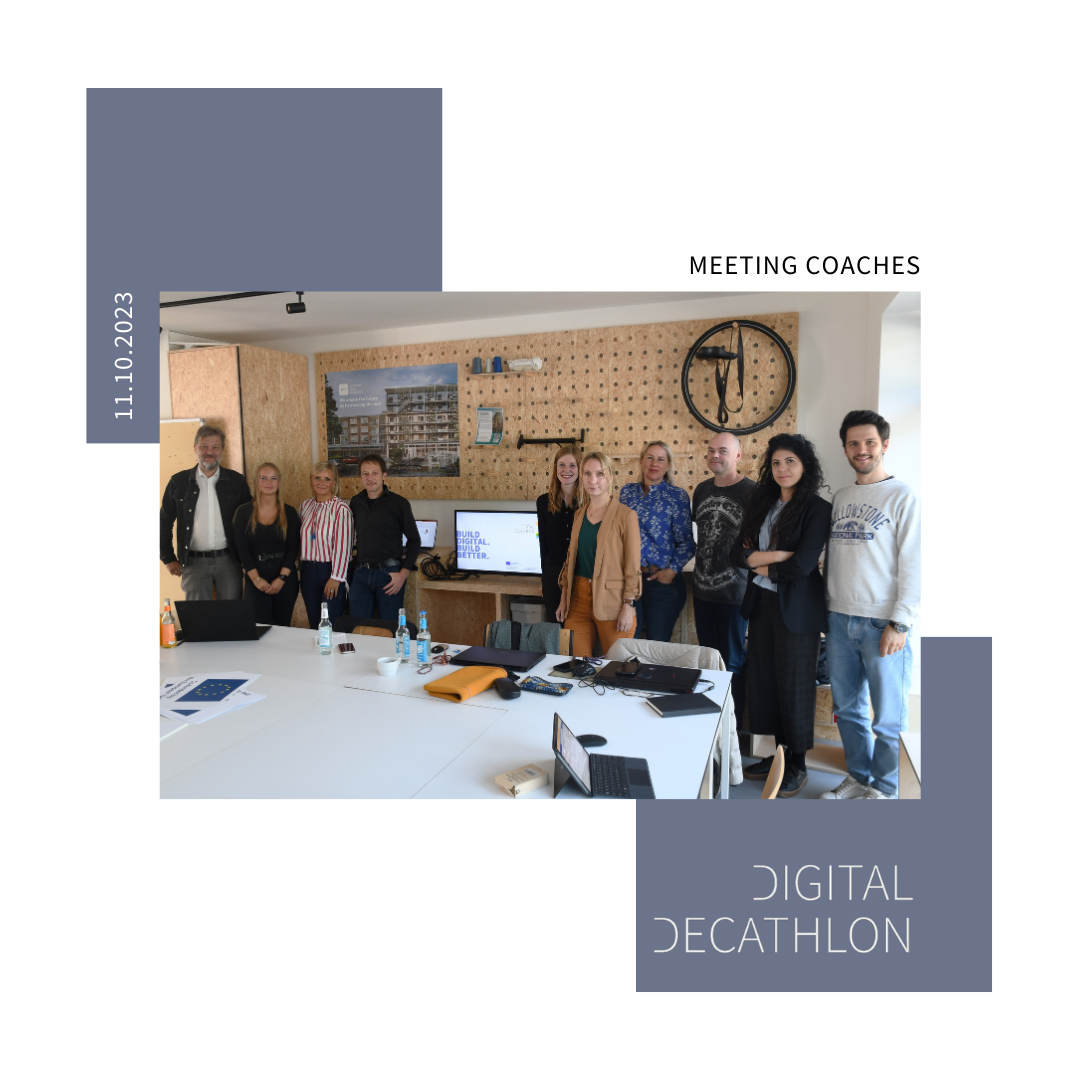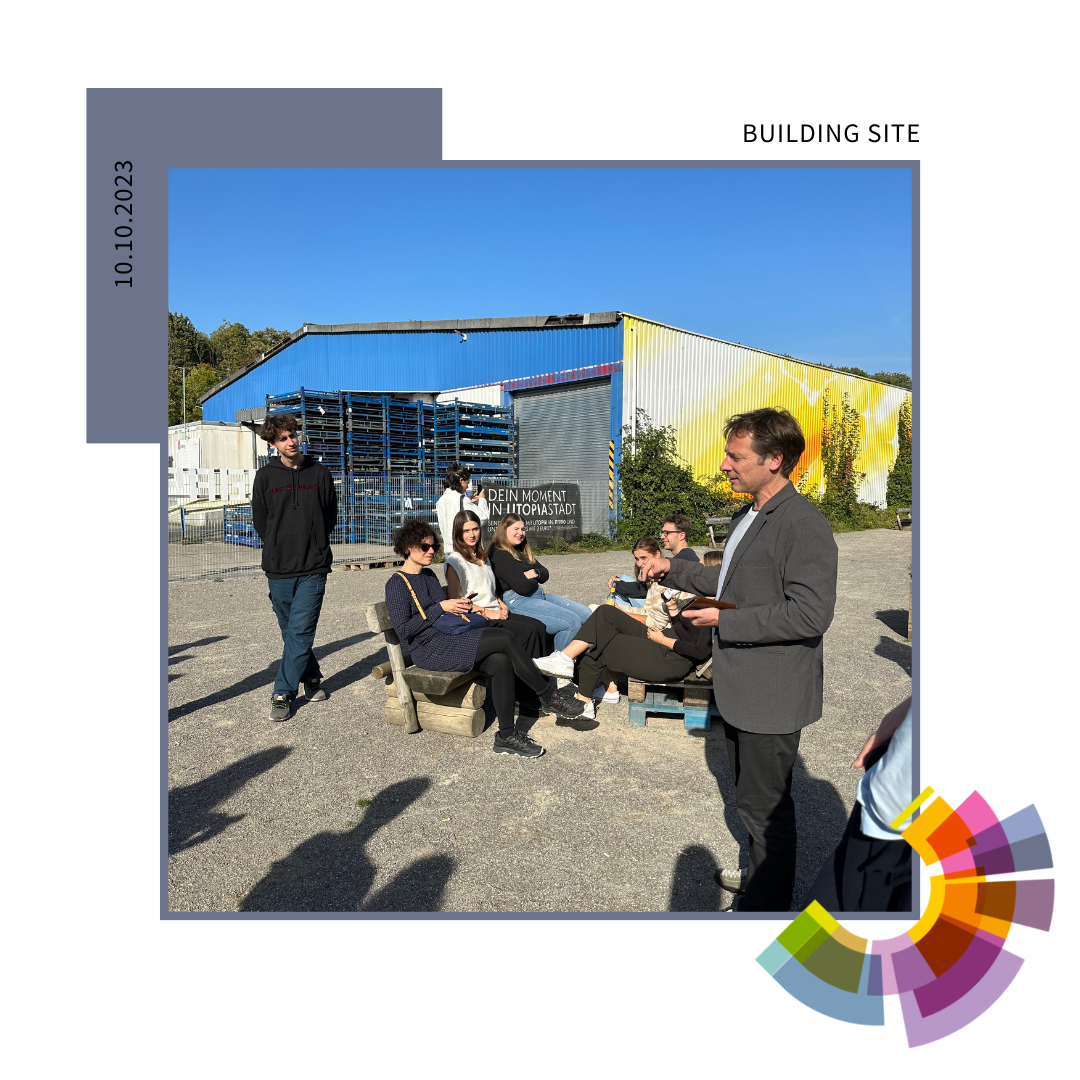Back
Background
Twenty-five students from five different universities met in Wuppertal from 9 to 12 October to work in competing teams on a joint design task. The event was hosted by the BIM Institute under the direction of Prof. Dr.-Ing. habil. Dipl.-Wirt.-Ing.Anica Meins-Becker, supported by Agnes Kelm.


The first item on the agenda was to introduce the Digital Decathlon design competition. All project partners gave a short welcome and then the task was presented: The transformation of an old empty logistics hall into a cultural center in Wuppertal. Digital planning is at the heart of this task. The students will demonstrate their skills in Building Information Modelling in 10 different disciplines. All design information is stored in a central 3D model.
Program:
Monday 09. October
On 9 October 2023, all five partner universities and their students traveled to Wuppertal for a joint meeting and the start of the first competition. The journey was organized individually for each university. The participants from Oldenburg and Warsaw traveled by train. Karelia Ammattikorkeakoulu University traveled by plane and then train in freezing temperatures in Finland. In Florence it was similar to Finland, but the journey started in warm temperatures by plane and then by train from Dortmund to Wuppertal.
Tuesday 10. October
On 10 October, all project partners and their students met for the first time at the Living Lab in Wuppertal. The Living Lab was created by Solar Decathlon 2022 and is the Digital Decathlon's educational venue for the two-day meeting in Wuppertal.

The first item on the agenda was to introduce the Digital Decathlon design competition. All project partners gave a short welcome and then the task was presented: The transformation of an old empty logistics hall into a cultural center in Wuppertal. Digital planning is at the heart of this task. The students will demonstrate their skills in Building Information Modelling in 10 different disciplines. All design information is stored in a central 3D model.
The Living Lab Wuppertal also gave a guided tour of the site and background information on the location. This background information is very important for the participants, as the logistics hall to be transformed is located on the same site as the Living Lab.
Wednesday 11. October
The second day started at the University of Wuppertal. Here, participants and partners were given a guided tour of the university's various laboratories and a brief overview of individual research projects.

After a tour of the Bergische Universität in Wuppertal, everyone headed to the Living Lab. A ride on Wuppertal's famous suspension railway was a must.
Arriving at the Living Lab the teams had time to divide up their disciplines, organise meetings and work on their concept for the design competition.

While the student teams were working on their brief and design idea, the partners met to discuss the next steps. After all, the planning of the project has to continue with the start of the first competition. In particular, the next meetings for the mid-term evaluation and the final in Florence need to be planned.
At the end of the second day, the groups presented their pitches on what they had achieved during the day. Various aspects such as division of labour, online meetings and scheduling, as well as initial design ideas were presented.
Thursday 12. October
The two intense days in Wuppertal went by quickly and the students were eager to continue their work. But on Thursday morning, 12 October 2023, it was time to say goodbye for the time being. The collaboration will now continue for a semester, initially online. In February next year, the groups will meet again in Florence. The students will present their results and we will award prizes to the best projects.

"I was pleased to see how motivated the students were to work on the digital use cases. The collaborative work brings the students together. Initial reservations about international cooperation and communication in English quickly disappeared," explains Prof. Dr. Gregor Grunwald from the Faculty of Architecture at Jade University of Applied Sciences.